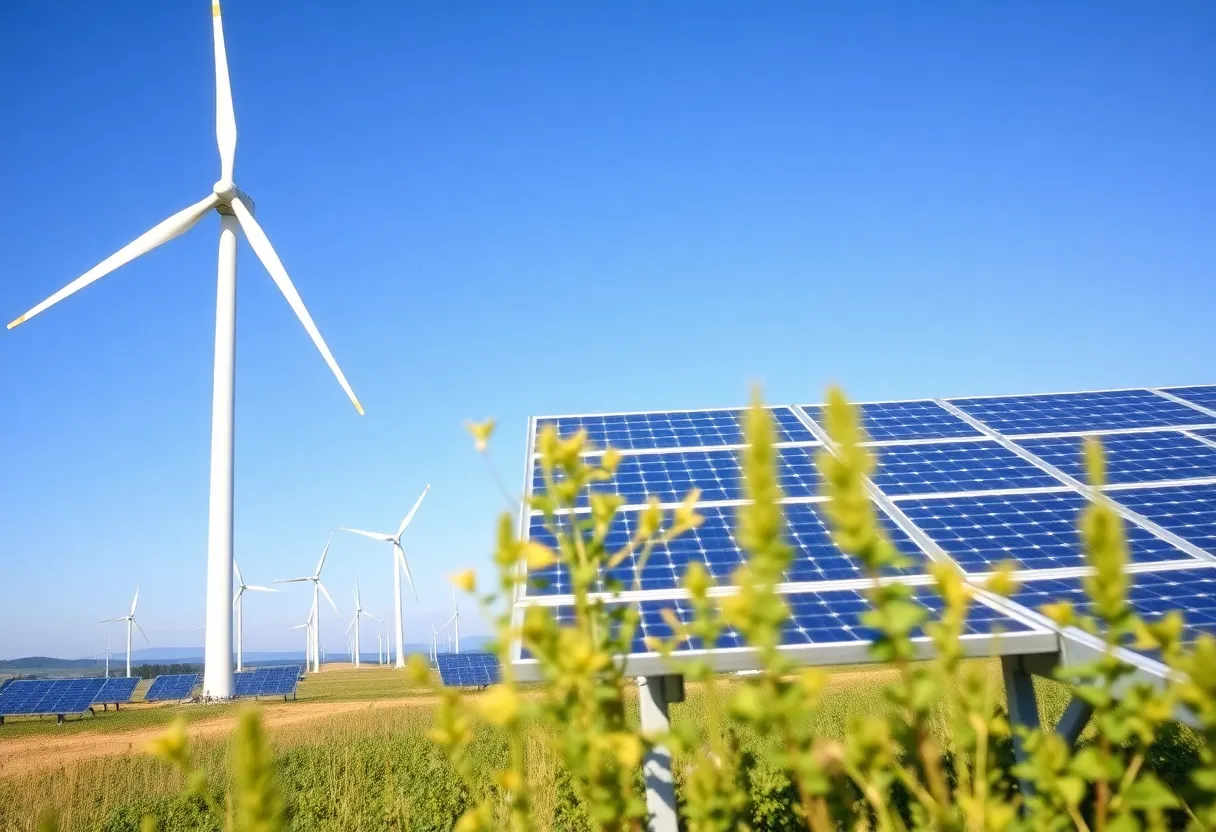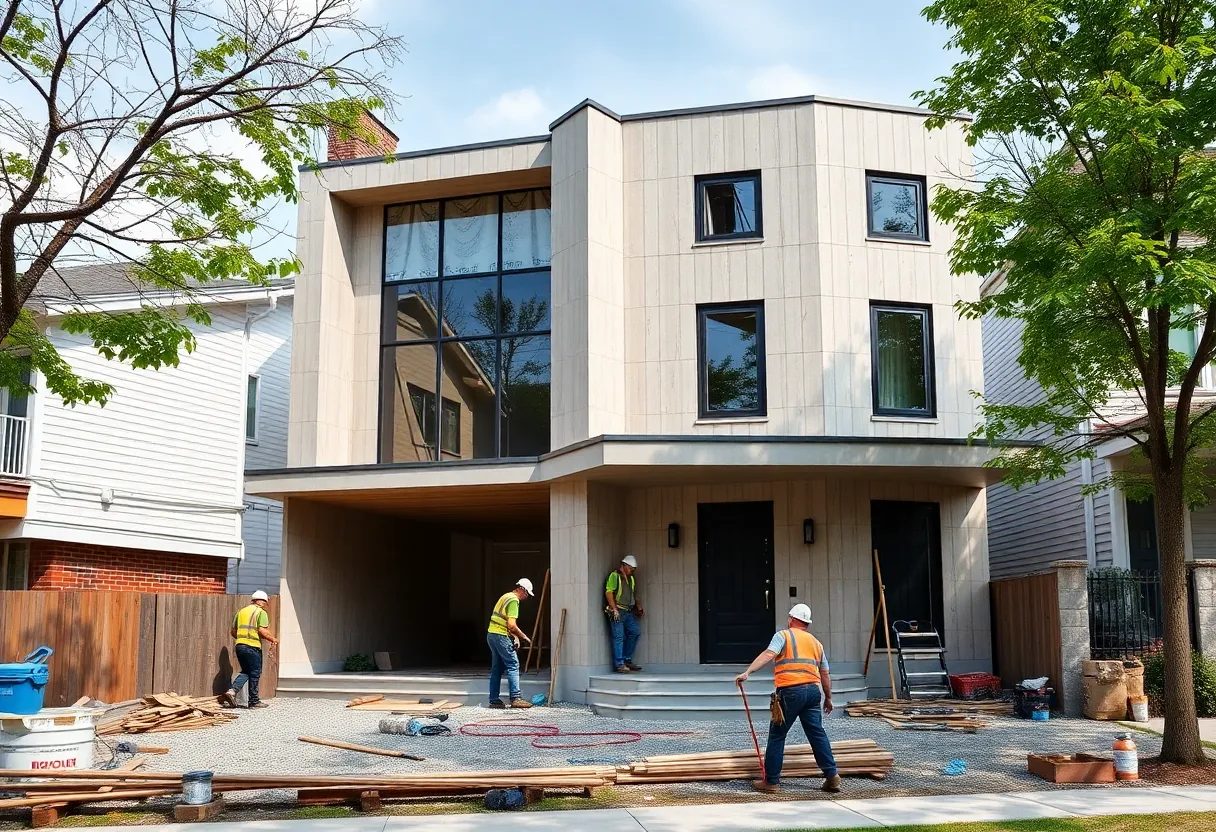News Summary
The IRS has introduced updated guidelines that make it more difficult for wind and solar projects to qualify for federal tax credits. These changes require substantial physical work to have begun on projects, eliminating the previous 5% Safe Harbor option, and necessitating strict documentation. Stakeholders in the renewable energy sector are concerned that these stricter criteria could hinder development and raise electricity costs. As the deadline for qualifying projects approaches, industry actors are evaluating the implications of these new standards on project planning and deployment.
Washington, D.C.,
In a move that could significantly impact renewable energy projects, the Department of Treasury and the Internal Revenue Service (IRS) issued new guidance on August 15, 2025, that tightens construction requirements for wind and solar facilities seeking federal tax credits. These changes aim to clarify the criteria for qualifying projects ahead of the upcoming July 4, 2026 deadline.
Background and Context
The updated regulations are a direct response to a recent executive order issued by President Donald Trump on July 7, 2025. The order seeks to phase out subsidies for energy sources considered unreliable or controlled by foreign entities, thereby emphasizing domestic and dependable energy generation. This development coincided with legislative changes brought about by the One Big Beautiful Bill, passed in July 2025, which curtailed tax credits for wind and solar facilities placed into service after December 31, 2027. To qualify, projects must have commenced construction by July 5, 2026.
Key Provisions of the New Guidance
The IRS Notice 2025-42 introduces more stringent rules defining when a wind or solar project can be considered to have “begun construction” for tax credit purposes. The guidance applies prospectively, affecting projects starting construction on or after September 2, 2025. Projects that met previous standards through certain safe harbors before this date retain their eligibility.
Abolition of the 5% Safe Harbor
The guidance eliminates the 5% Safe Harbor option for all wind facilities and most solar facilities. Previously, if a small percentage of the project’s expected costs—at least 5%—was incurred before a certain date, the project could be considered to have begun construction. Now, this safe harbor is no longer available, making it more challenging for projects to qualify under this category.
Physical Work Test
The Physical Work Test remains the primary criterion. To meet this test, a project must demonstrate that physical work of significant nature has commenced onsite or through binding offsite contracts, including manufacturing activities. Importantly, activities such as surveys or test drilling do not qualify as physical work. The physical work must be substantial and not merely preparatory steps.
Continuity Safe Harbor
Despite the stricter requirements, the guidance maintains the Continuity Safe Harbor. Under this rule, if a project begins construction before September 2, 2025, and is placed into service within four years, it can still qualify for the tax credits, provided the physical work continues without interruption.
Implementation and Industry Response
The new guidance mandates that documentation of a continuous construction program be maintained, although it does not specify detailed procedures for doing so. This emphasizes the importance of meticulous record-keeping for project developers aiming to qualify for the credits.
The renewable energy industry has expressed concerns that these more restrictive standards could slow the development of wind and solar projects, potentially raising electricity prices. Critics argue that by focusing strictly on the physical activities of construction rather than a monetary threshold, the rules may discourage early project initiation and undermine previous flexibility allowed in legislative negotiations.
Political Dynamics and Broader Impact
The stricter rules reflect ongoing political debates within the Republican Party, notably tensions between moderate and conservative members. While some legislators advocate for tighter controls to ensure project viability and prevent abuse, others worry that overly restrictive measures could hamper industry growth.
Senior lawmakers, including some from the Republican side, have welcomed the guidance as providing clearer standards and a viable pathway for projects to meet energy demands. Notably, certain senators have endorsed the approach, emphasizing the importance of verifiable physical work for project qualification.
Summary
Overall, the IRS guidance marks a shift toward more rigorous verification of construction activities for wind and solar tax credits, aiming to ensure projects demonstrate genuine progress. While projects starting prior to the effective date or qualifying under existing safe harbors are unaffected, future developments must adhere to these tighter criteria to secure federal incentives. As the deadline approaches, stakeholders are closely analyzing how these rules will influence project planning and deployment across the renewable energy sector.
Deeper Dive: News & Info About This Topic
HERE Resources
Additional Resources
- The Hill: Treasury Guidance on Wind and Solar Tax Credits
- Utility Dive: Treasury Commence Construction for Wind and Solar Tax Credits
- Wall Street Journal: European Renewable Stocks Rise After U.S. Tax Credit Guidance
- Recharge News: Wind Power Stocks Surge After U.S. Tax Credit Specification
- Politico Pro: Treasury Reportedly Tightens Screws on Tax Credits for Renewables
Author: STAFF HERE WASHINGTON DC
The WASHINGTON DC STAFF WRITER represents the experienced team at HEREWashingtonDC.com, your go-to source for actionable local news and information in Washington, DC, and beyond. Specializing in "news you can use," we cover essential topics like product reviews for personal and business needs, local business directories, politics, real estate trends, neighborhood insights, and regional news affecting the area—with deep expertise drawn from years of dedicated reporting and strong community input, including local press releases and business updates. We deliver top reporting on high-value events such as the National Cherry Blossom Festival, Kennedy Center Honors, and the Washington Auto Show. Our coverage extends to key organizations like the Greater Washington Board of Trade and Destination DC, plus leading businesses in government contracting and technology that power the local economy such as Lockheed Martin and Amazon. As part of the broader HERE network, we provide comprehensive, credible insights into the dynamic landscape of the Washington metropolitan area.




